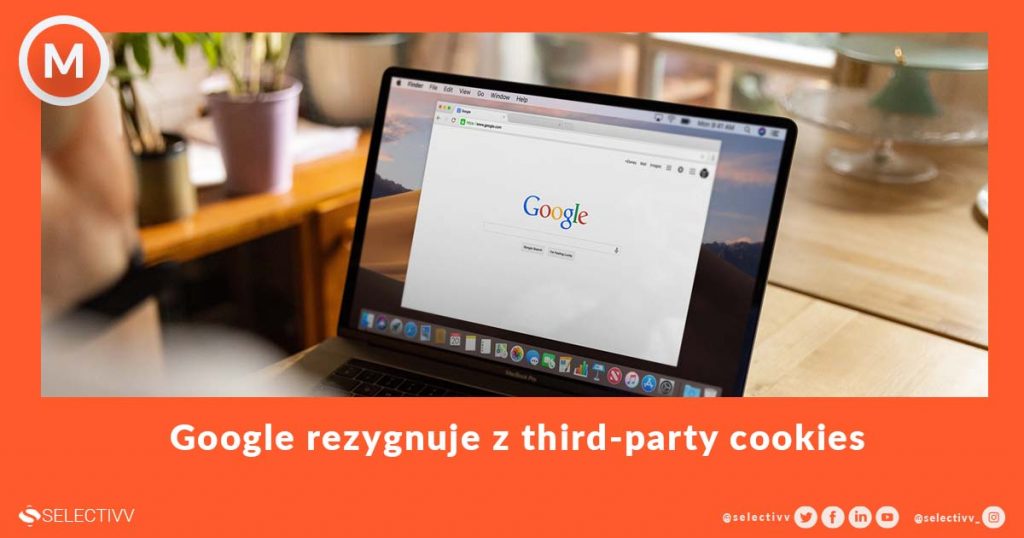Google announced that by 2022 its Chrome browser will no longer allow websites to use third-party cookies. The main reason is to protect users’ privacy on the Internet, but this explanation raises doubts. In return, he proposes the FLoC technology (Federated Learning of Cohorts), which also tracks, but on other terms. The change may hit third parties that have so far used Chrome tracking codes for better ad targeting. How will Google's step affect the industry?

External identifiers, i.e., third-party cookies, are tracking codes placed on websites by external companies. They are supported by a given browser and allow to set users’ individual preferences. This is the trace that each of us leaves when surfing the internet. This data is helpful for advertisers and marketers when creating targeted ads. Despite third-party cookie’s advantages, they raise concerns among users. More and more of them are afraid of being tracked on the web and care more about their privacy.
Google knows it. In an article posted on the company's blog, David Temkin, Director of Product Management, cites research by the Pew Research Center. It shows 72% of Internet users believe that advertisers fully track their online activity, and 81% believe that the risks associated with collecting data are higher than the benefits of these practices. So Google resigns from third-party cookies, but is the FLoC tool more ethical?
Federated Learning of Cohorts (FLoC) is a mechanism created with the same purpose as third-party cookies - to monitor what we browse on the Web and advertise more of it. In this case, our data is not analyzed individually but falls into a cohort (group) of users with similar interests. We will continue to receive targeted ads but now based on averaged cohort data.
Additionally, our data will be the property of Google. External companies will ask Google to share data, not collecting it on their own, as before. We can assume that Google’s concern about users’ privacy loses to the desire to have a monopoly on data ownership.
The FLoC tool as privacy protection sounds like a proper solution, but what raises doubts is the process of collecting data by browsers. During its work, it collects digital fingerprints, i.e., small pieces of information, valuable in creating a unique and unchangeable index for a given user. Is it possible just to separate data from the cohort to receive individual details on each user?
Google reassures cohorts will consist of thousands of users’ profiles, so it will be tough to isolate individual people’s data. Will Google’s step affect the industry?
Google is a giant - company members, competitors, and users know it. According to StatCounterdata, Chrome's share in the global browsers market in 2020 was almost 70%. However, we should remember that resigning from third-party cookies is nothing new. Apple and Mozilla have already decided to take such a step.
Interestingly, in October 2016 , the number of website views on mobile devices was higher than on desktops. This trend has been going on for almost 5 years, and we can expect it to continue. We also use more and more mobile apps. That is why investing in mobile campaigns is a forward-looking strategy. At Selectivv, we offer solutions that do not require cookies. We can work independently from the recent Google’s decision. That’s why mobile ad targeting campaigns are already paying off.
You can find more information about our services on the website oraz na blog Selectivv.